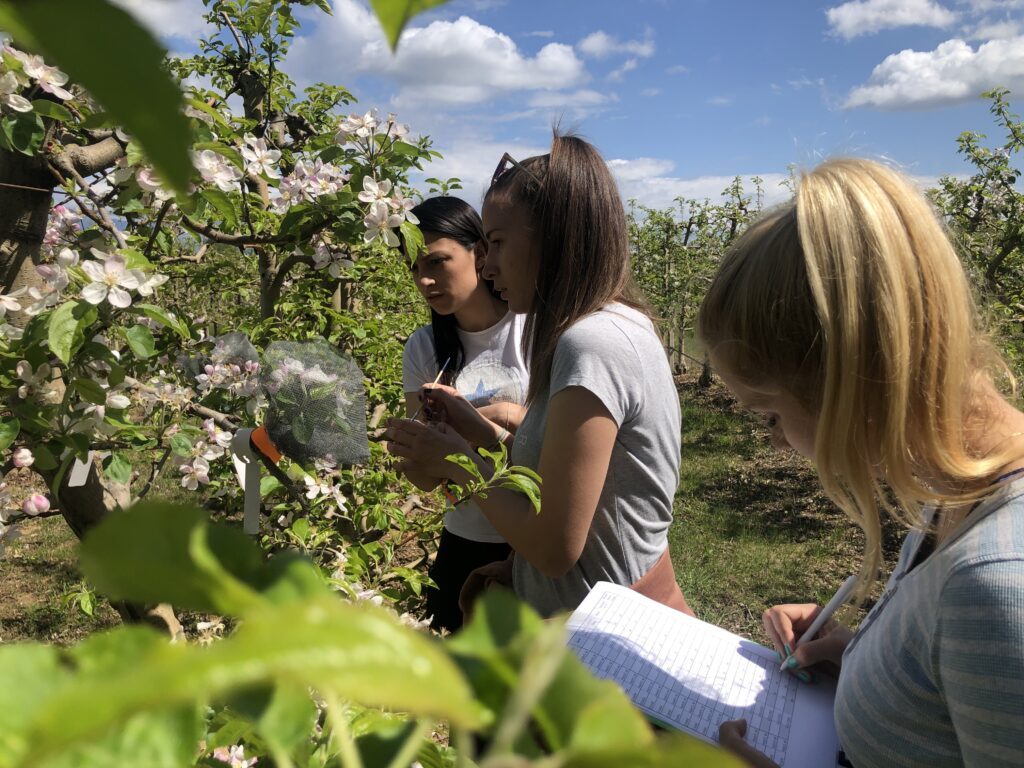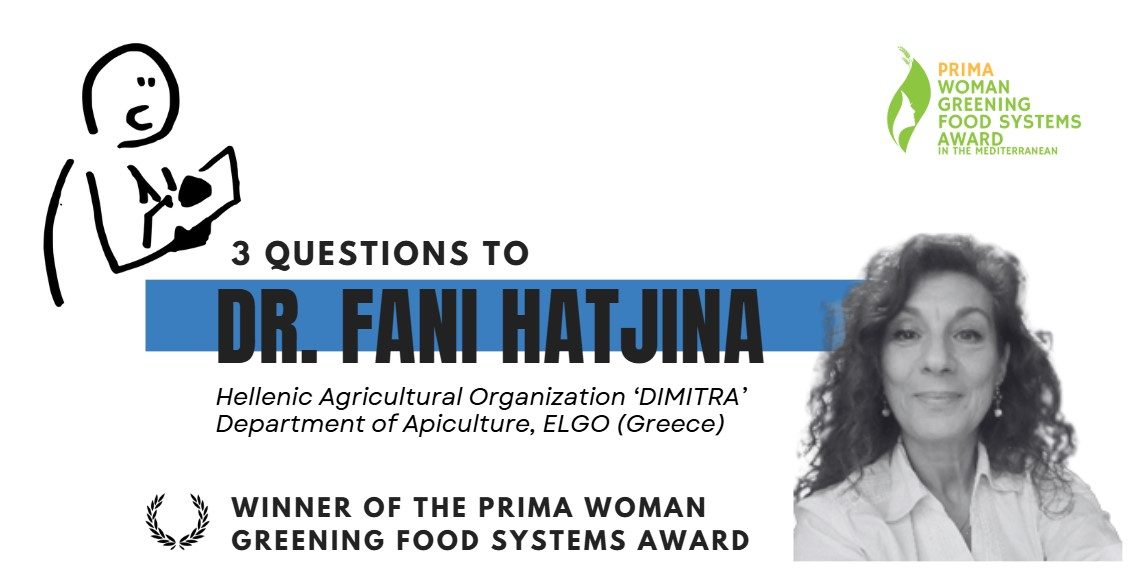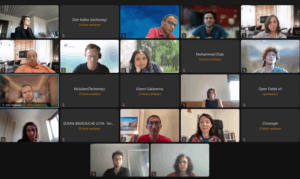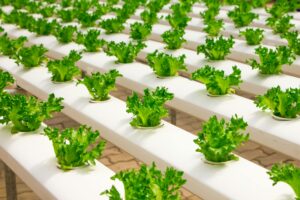One of the four winners of the PRIMA Award for Women Greening Food Systems, Dr. Fani Hatjina is pioneering efforts to safeguard agroecosystem resilience through sustainable beekeeping in Greece. As part of our series spotlighting these inspiring women, we asked her three key questions to learn more about her vision and impact.
Across the Mediterranean, the importance of pollinators is becoming more evident as climate change threatens biodiversity and food security. Dr. Hatjina, a biologist and bee expert from the Hellenic Agricultural Organization ‘DIMITRA’, is tackling this challenge head-on with her SafeAgroBee project. Focused on efficient pollination and the sustainability of beekeeping, the project is developing innovative monitoring tools and precision apiculture systems to better understand and protect local honey bee populations in the face of climate change.
By engaging local communities through Citizen Science and creating a Health Status Index to predict bee colony productivity, Dr. Hatjina and her team are ensuring the future of Mediterranean pollinators and the ecosystems that depend on them.

⬇️ Three questions for Dr. Fani Hatjina…
Why are bees so critical to Mediterranean food systems, and how does your initiative ensure their survival?
Bees are crucial to all ecosystems, but the Mediterranean region is characterized by vast biodiversity and diverse climatic conditions. Bees are essential for ensuring pollination efficiency and have the ability to adapt to changes in these conditions. The SafeAgroBee project explicitly demonstrated the better adaptability of local genetic bee resources, the potential for using beneficial bacteria from local bee populations to fight harmful bacterial diseases, and how bee-friendly agricultural and organic beekeeping practices increase the survival of bee populations. The strong adaptability of local bee populations is essential for ensuring sustainability in light of future climate predictions.
How does your Citizen Science approach engage local communities in pollinator conservation?
In the SafeAgroBee project, we used the Citizen Science approach to engage three categories of stakeholders: beekeepers, farmers, and university students. We involved all of them in our experimental methodology, albeit on a small scale. By doing so, we transferred knowledge and experience on monitoring the parameters affecting the survival and well-being of pollinators. We believe that we’ve planted the seeds for improved collaboration between farmers and beekeepers, which benefits both parties and the environment.
What are some of the innovative tools you’ve developed to monitor bee health and productivity under changing climate conditions?
The innovations we developed in the SafeAgroBee project include:
i) Incorporating sound analysis in precision apiculture monitoring tools
ii) Using the bee’s beneficial bacteria to combat harmful bacterial diseases
iii) Developing the novel Health Status Index (HSI) model for predicting honey bee colony health by simplifying the complex interactions affecting honey bee colony health and converting them into a single value
iv) Developing an individual-based model for evaluating crops’ carrying capacity, bee pollination efficiency, and agroecosystem resilience under different environmental scenarios, as well as forecasting honey colony productivity. Both models aim to support decision-making.




